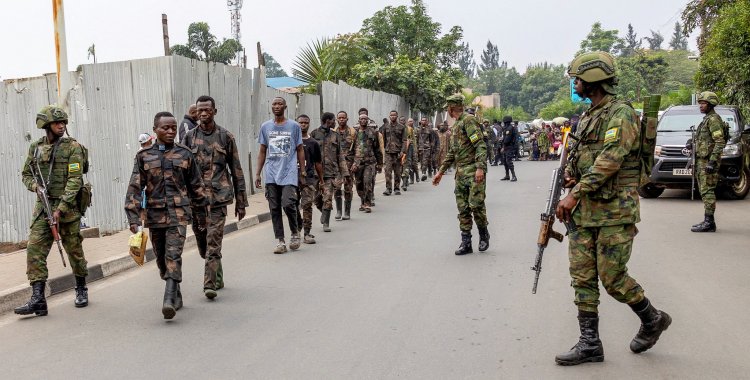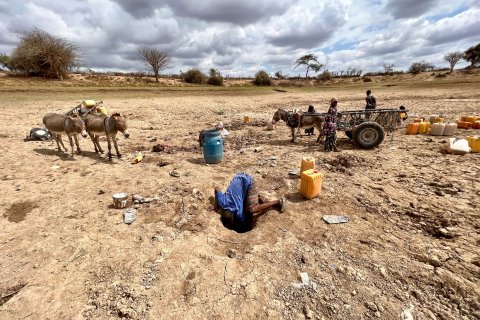Analysts interviewed by Lusa consider that Angola, as a country mediating the conflict, has "all the conditions" to welcome the delegations and understand that the President of the Democratic Republic of Congo (DRCongo) must show public commitment to dialogue with the M23, even if the meeting is "quite long and difficult".
This meeting "opens a new window of opportunity for peace in the east of the DR Congo, but it will still be a very long and difficult meeting, because the two parties will bring up antagonistic and divergent points", said Osvaldo Mboco, professor of international relations, in statements to Lusa this Monday.
The academic considered it essential that the "political tact" of Angolan diplomacy works [during this round of negotiations] to "try to balance the different divergent points" that will be put on the table.
Tiago Armando, an expert in international relations, considered, in turn, that there are necessary conditions for the Luanda dialogue, defending, however, that a ceasefire will give greater sustainability and consistency to the negotiations.
He argued that diplomatic channels between the mediating country and the parties in conflict should be more refined, noting that the "lack of public commitment by Félix Tshisekedi [the President of the DR Congo] constitutes a procedural problem" that must be overcome for the negotiations to be successful.
"From the beginning, Tshisekedi was resistant to agreeing to talk with the M23" (March 23 Movement), claiming that the movement "did not have the legitimacy to negotiate", Tiago Armando told Lusa, recalling that "communication [about the Luanda meeting] is made directly on the Facebook page of the Presidency of the Republic of Angola and only the spokesperson for the Congolese government took on the negotiation".
Luanda will host this Tuesday, March 18, "direct negotiations" for peace between the authorities of the DR Congo and the M23 rebels, as part of Angola's mediation of the conflict, as announced by the Angolan Presidency in a statement.
For Osvaldo Mboco, the Congolese government is going into this meeting in a fragile position – at a time when the M23 is taking several cities and showing superior combat capacity to that of the regular army of the DR Congo – while for the M23 it translates into "gaining its legitimacy".
"There is a significant gain for the M23 from one of the demands it has made in recent times, there is also a political and diplomatic gain for Rwanda, which for a long time understood that the M23 must be at the negotiating table," he noted.
Concessions between the parties to the conflict were defended by the two Angolan analysts, who believe that the Luanda meeting should outline paths towards a ceasefire, the opening of humanitarian routes in the affected areas and the addressing of deep-rooted issues by the parties.
"We hope that there will be positive results, that there will be a ceasefire (...) and note that the M23 has been saying that it will not be possible to end the conflict if it does not discuss the basic issues or the deep issues related to the conflict such as ethnic issues, power-sharing (which is of great concern to the Congolese Government)," highlighted Tiago Armando.
Osvaldo Mboco signalled that "it is illusory" to think that peace will be found for the DR Congo in a single round of negotiations, considering, however, that the most important thing "is that there is a commitment and that the primary actors are imbued with the spirit of good faith".
He also defended the inclusion of Rwanda in the next rounds of negotiations, because, he explained, "it is public knowledge that Rwanda has been supporting the M23 and certainly the position that the M23 will take to the negotiating table has already been agreed with Rwanda".
The armed activity of the M23 – a group made up mainly of Tutsis victims of the 1994 Rwandan genocide – resumed in November 2021 with lightning attacks against the government army in North Kivu, having advanced on several fronts and raising fears of a possible regional war.







